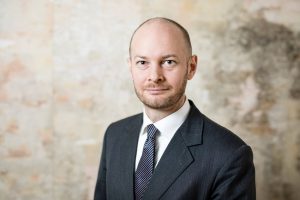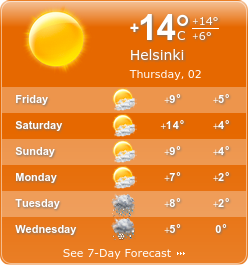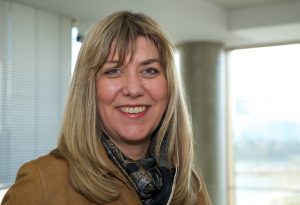Opening Adresses
Sampo Terho

© Laura Kotila, valtioneuvoston kanslia
Personal details:
Minister for European Affairs, Culture and Sport, 5 May 2017 to present
Master of Science, Member of Parliament
Blue Reform
Date and place of birth: 20 September 1977, Helsinki
Place of residence: Helsinki
Political career
Minister for European Affairs, Culture and Sport, 5 May 2017 to present
Member of Parliament, 2015 to present
Parliamentary work
Member of European Parliament, 2011–2015
Other work experience and societal responsibilities
National Defence University, Researcher 2007–2010
Ministry of Defence, Information Services Secretary 2004–2005
Association of Finnish Culture and Identity, Chair 2009 to present
Publications
Strategian jäljillä (Tracing strategy), National Defence University 2009
Näkökulmia maanpuolustustahtoon, (Perspectives on the will to defend the country), National Defence University 2010)
Other information
Interests: music, literature, philosophy and history
Language skills: English
Snežana Samardžić-Marković
Investing in democratic security
Ms Snežana Samardžić-Marković is the Director General of Democracy at the Council of Europe since 2002. Under her responsibility, the Directorate General works to help our member states in creating a favourable environment for sustainable democracy and democratic security in Europe.
Three directorates and eight partial agreements under her responsibility are providing guidance, assistance and innovation in the areas of democratic governance, participation and diversity. Her responsibilities include the policy areas of education and youth, local democracy, cultural policies, election assistance, the protection of human dignity, gender equality, children’s rights, and the rights of minorities, work against discrimination, democratic citizenship and democratic responses to crisis situations.
Previously, Ms Samardžić-Marković has held numerous positions in the Serbian Government including as Deputy Director in the Ministry of Foreign Affairs for Neighbouring Countries; Assistant Minister of Defence (2005-2007) and Co-President of the Serbia-NATO Defence Reform Group; member of the Foundation Board of WADA, Minister of Youth and Sports (2007-2012) and President of the Fund for Young Talents.
Programme
Click here to download the programme.
Wednesday, 20th February
Arrival of participants
Accommodation:
Scandic Hotel Grand Marina
Katajanokanlaituri 7, 00160 Helsinki
https://www.scandichotels.fi/hotellit/suomi/helsinki/scandic-grand-marina
Registration at seminar venue
Marina Congress Center
Katajanokanlaituri 6, 00160 Helsinki
http://marinacongresscenter.com/en
13:15 – 13:45 Opening addresses
Sampo Terho, Minister for European Affairs, Culture and Sport of Finland
Snežana Samardžić-Marković, Director General of Democracy, Council of Europe
13:45 – 14:00 Recommendation of the Committee of Ministers on Youth Work
Antje Rothemund, Head of the Youth Department, Council of Europe
14:00 – 14:20 Education and Training of Youth Workers in Europe
Overview based on studies conducted by the CoE-EU Youth Partnership and the Finnish Youth Research Network
Marta Medlinska, Coordinator, and Tanya Basarab, Research and Youth Policy Officer, Youth Partnership between the European Commission and the Council of Europe
14:20 – 14:50 Break: coffee with snacks
14:50 – 15:15 Finnish Youth Work Model and Youth Work Education and Training
Juha Nieminen, University Instructor, University of Tampere &
Tomi Kiilakoski, Senior Researcher, Finnish Youth Research Network
15:15 Introduction to field visits in plenary
Field visits present innovative practices of youth work organisations and educational institutions, which are providing education and training for people working and acting in the youth work field.
Back to Marina Conference Centre
19:15 Outcomes from the Field Visits
19:30 – 19:45 Comments by Miriam Teuma, Chairperson of the European Steering Committee for Youth, Council of Europe
20:00 Buffet Dinner at Restaurant Marine
Thursday, 21st February
09:00 -09:45 The Challenges of Young People in Contemporary Europe -which challenges should youth work respond to?
Panel discussion led by Anja Olin-Pape, Chairperson of the Joint Council on Youth and the Advisory Council on Youth, Council of Europe
09:45-10:00 Human Rights Education in Youth Work
Rui Gomes, Head of Education and Training Division, Youth Department, Council of Europe
10:00 -10:15 Youth Worker´s Digital Competences
Suvi Tuominen, Manager, Verke – Centre of Expertise for Digital Youth Work in Finland
10:15 – 10:45 Coffee Break
10:45 – 11:15 Examples Inspiring the Group Work Session:
3 X 10 min Practical examples of Education and training of youth workers in Europe
Example of vocational training of youth workers
Vanja Kalaba, Centre for Youth Work, Serbia
Example of training for youth workers working on voluntary basis
Liva Vikmane, European Youth Forum
Example of higher education
Ursula Roslöf, Senior Lecturer, Humak University of Applied Sciences
11:15 Introduction to the Working Groups (in plenary)
The goal of the working groups: The goal of the working groups is to find out different aspects on the educational and career paths of youth workers in Europe, and to discuss and debate relevant themes together. The emphasis is both on finding the common ground and spelling out different challenges in different practice architectures of youth work around Europe.
The Themes of the Working Groups (Reflecting Experiences, Expectations, Good Practices)
1. Higher Education in Youth Work
2. Vocational Education in Youth Work
3. Continuous education and validation of prior learning in youth work
4. Training for volunteer and recognition of learning in trainings
5. Mentoring
6. Work based education on higher level
7. Training for Trainers
8. Implementing the Recommendation
13:00-14:00 Lunch
14:00-14:30 Working Groups will continue: finalizing the outcomes
14:30-15:30 Outcomes of the Working Groups
15:30-16:15 Reflection of the Group Work Outcomes by Dr. Howard Williamson, Professor of European Youth Policy, University of South Wales, United Kingdom
16:15 -16:45 Coffee Break
16:45 -17:30 Introduction to some youth work education and training models in Europe – training for voluntary workers, training and education for professional youth workers
Presentations by training and education providers from different countries and study levels.
17:45 Departure to the Reception
18:00-19:00 Reception of the City of Helsinki, Old Court House, Aleksanterinkatu 20 hosted by Deputy Mayor Nasima Razmyar, City of Helsinki
20:00 Dinner at Restaurant Marine
Friday, 22nd February
09:30-10:00 Education and Training Opportunities Provided by European Programmes
Council of Europe
Rui Gomes, Head of Education and Training Division, Youth Department, Council of Europe
Practical example of Erasmus+ Youth granted project: Youth Workers´ eLearning Partnership
Eeva Sinisalo-Juha, Senior lecturer, Humak University of Applied Sciences
10:00- 10:30 Summarising the Seminar: Coherent, but Flexible Framework for Youth Work Education and Training?
Rapporteurs Dr. Howard Williamson and Dr. Marko Kovacic
10:30 –11:00 Comments by
President Jaana Fedotoff, European Youth Information and Counselling Agency (ERYICA)
Professor, Dr. Christian Spatscheck, City University of Applied Sciences Bremen, Germany
PhD Marko Kovacic, Institute of Social Research, Croatia
11:00-11:30 Coffee Break
11:30 Future Perspectives by Antje Rothemund, Head of the Youth Department, Council of Europe
Address by Germany – the host of the 3rd European Youth Work Convention 2020
Axel Stammberger, Federal Ministry for Family Affairs, Senior Citizens, Women and Youth, Germany
12:00 Closing Words of the Seminar
Henni Axelin, Director for Youth, Division of Youth Work and Youth Policy, Ministry of Education and Culture, Finland
Family Photo
12:30 Lunch
Departure of the participants








